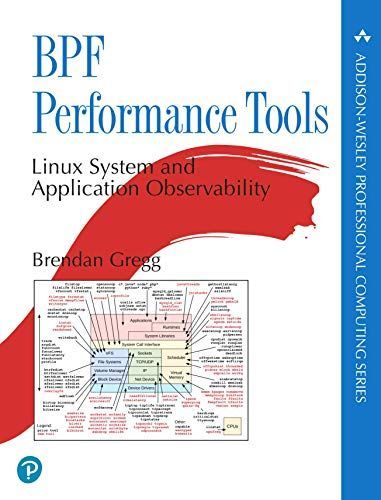
BPF Performance Tools
Use BPF Tools to Optimize Performance, Fix Problems, and See Inside Running Systems BPF-based performance tools give you unprecedented visibility into systems and applications, so you can optimize performance, troubleshoot code, strengthen security, and reduce costs. BPF Performance Tools: Linux System and Application Observability is the definitive guide to using these tools for observability. Pioneering BPF expert Brendan Gregg presents more than 150 ready-to-run analysis and debugging tools, expert guidance on applying them, and step-by-step tutorials on developing your own. You'll learn how to analyze CPUs, memory, disks, file systems, networking, languages, applications, containers, hypervisors, security, and the kernel. Gregg guides you from basic to advanced tools, helping you generate deeper, more useful technical insights for improving virtually any Linux system or application. * Learn essential tracing concepts and both core BPF front-ends: BCC and bpftrace * Master 150+ powerful BPF tools, including dozens created just for this book, and available for download * Discover practical strategies, tips, and tricks for more effective analysis * Analyze compiled, JIT-compiled, and interpreted code in multiple languages: C, Java, bash shell, and more * Generate metrics, stack traces, and custom latency histograms * Use complementary tools when they offer quick, easy wins * Explore advanced tools built on BPF: PCP and Grafana for remote monitoring, eBPF Exporter, and kubectl-trace for tracing Kubernetes * Foreword by Alexei Starovoitov, creator of the new BPF BPF Performance Tools will be an indispensable resource for all administrators, developers, support staff, and other IT professionals working with any recent Linux distribution in any enterprise or cloud environment.
Reviews
Julien Sobczak@julien-sobczak